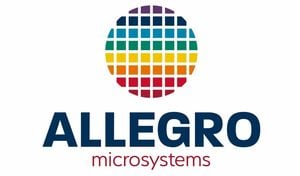Campbell Soup Company, the iconic food brand known for its variety of soups and condiments, is undergoing significant changes meant to revitalize its operations and strengthen its market position. Recently, the company announced notable leadership shifts as part of its efforts to adapt to modern business challenges and consumer preferences.
At the forefront of this transformation is Daniel L. Poland, who has been appointed as the Executive Vice President and Chief Enterprise Transformation Officer. This newly created role reflects Campbell's commitment to accelerating business performance and digital transformation across the organization. Poland, who joined Campbell's in 2022, brings with him considerable experience from previous roles, including his most recent position as Chief Supply Chain Officer. He will continue to report directly to Mark Clouse, Campbell's President and CEO.
Mark Clouse emphasized the importance of transformation for maintaining agility and driving growth within the food industry. "Transformation is imperative to stay nimble and accelerate our growth as we set the performance standard within the sector," Clouse said. The establishment of the Enterprise Transformation Office under Poland aims to integrate various functions, including business planning, digital advancements, innovation processes, food safety, sustainability, and shaping the supply chain network of the future.
Alongside Poland’s new leadership role, Cassandra Green has been promoted to Senior Vice President and Head of Supply Chain. She will oversee all aspects of the company's supply chain operations, ensuring efficient coordination from manufacturing to logistics. Green's promotion is seen as part of Campbell's proactive succession planning, as she has been with the company for over 13 years and has held multiple roles within supply chain management.
The reshuffle indicates Campbell's strategic direction away from non-core businesses. This month, the company announced plans to divest its noosa yogurt brand to Lakeview Farms LLC, which specializes in refrigerated dips and desserts. Although the exact sale price has not been disclosed, this transaction is expected to close early next year. The sale follows Campbell's earlier acquisition of noosa as part of its $2.7 billion purchase of Sovos Brands, which also included other products like Rao's premium pasta sauces. It appears Campbell is focusing on its leadership brands, which predominantly include sauces, snacks, and soups, rather than branching out significantly beyond these areas.
The noosa brand, which is projected to generate annual sales of approximately $177 million, contrasts sharply with Campbell's broader sales, which hit $9.6 billion last fiscal year. The decision to sell noosa aligns with Campbell’s strategy to narrow its focus, enhancing overall corporate efficiency and profitability. Mick Beekhuizen, Campbell's executive vice president, stated, "The sale of noosa will drive greater focus on our portfolio of leadership brands."
Despite some challenges faced after the Sovos acquisition, analysts have shown optimism about Campbell’s outlook, particularly due to the performance of its Rao's brand. Recently, Piper Sandler breakfast upgraded Campbell's stock, reflecting their belief in the company's growth potential. Analyst Michael S. Lavery noted the positive trends observed within U.S. sales and elevated long-term growth prospects attributed to the Rao's brand. This marks a significant point as Campbell has been under pressure amid shifts within the food industry and changing consumer tastes.
Interestingly, the dynamics of selling noosa are also interpreted as Campbell's focus on maximizing shareholder value. While the divestiture may reduce overall sales temporarily, analysts predict the impact on earnings per share will be minimal—about $0.01 for fiscal year 2025—as the company expects revenue growth from its core products to offset this loss.
The leadership changes and strategic divestitures reflect Campbell’s response to both internal evaluations and external market pressures, allowing it to refine its operations and core offerings effectively. The projected reshaping within the organization is not merely administrative; it signifies Campbell’s broader commitment to sustainable growth, aligning more closely with consumer trends and preferences—shifts toward healthier options being one prominent example.
Looking forward, Campbell aims to leverage its dedicated leadership and streamlined operations to navigate the increasingly competitive food market. Its focus on digital transformation and integrated business processes under Poland’s guidance could yield promising results as the company evolves to meet modern challenges and maintain its heritage as one of America's beloved brands. With these changes, Campbell Soup Company is not just reshaping its leadership; it’s laying the groundwork for its future as it strives to innovate and adapt, ensuring its continued resonance with consumers.
These developments come at a time when many food companies are refining their approaches, reflecting shifts not only within the market but also within consumer expectations for quality and sustainability. For Campbell, the transition is more than just business; it’s about standing out as they continue to serve their staple products alongside modern innovations. The next chapter for Campbell is just beginning, and the focus on leadership and transformation could signal exciting changes for consumers and investors alike.



